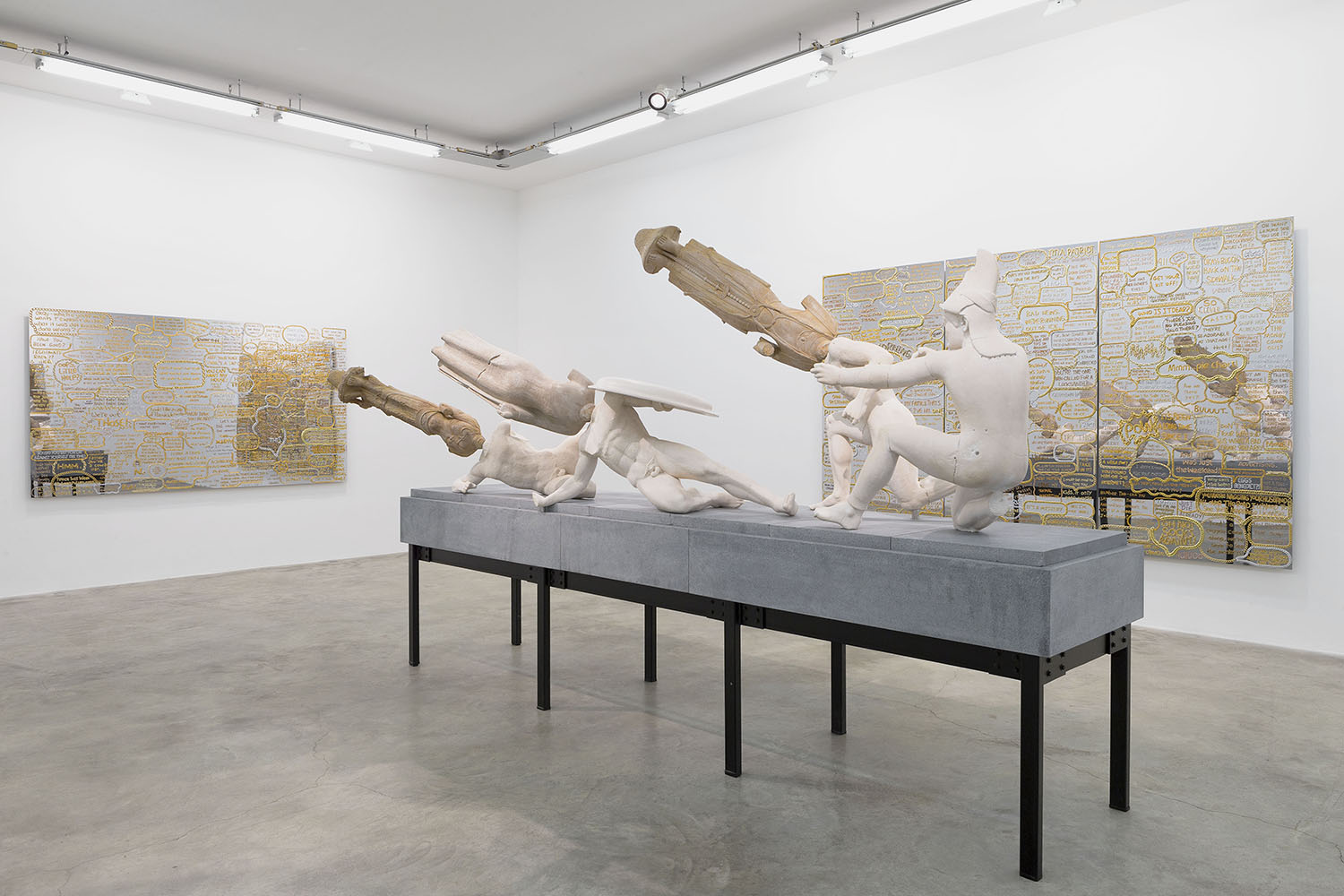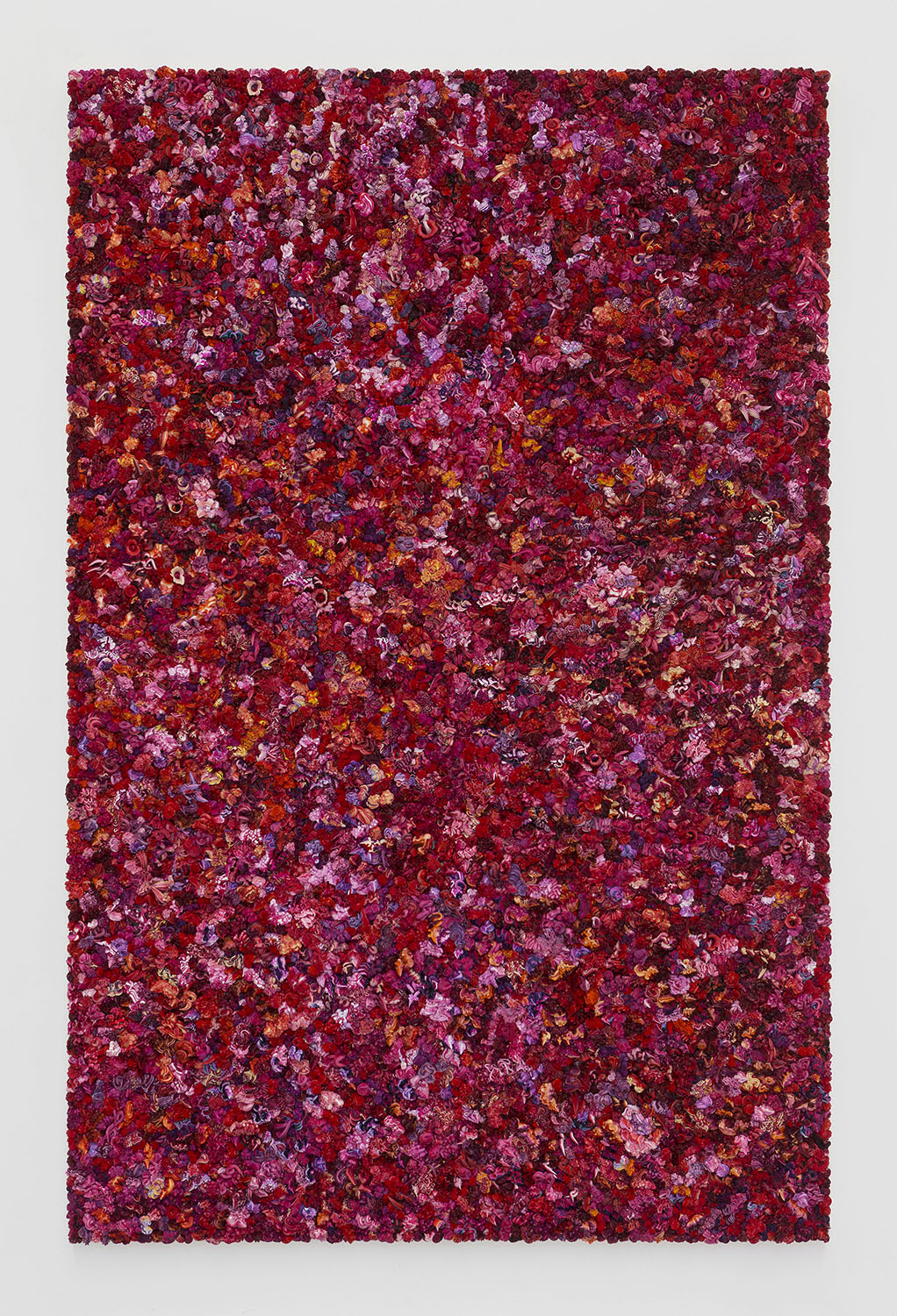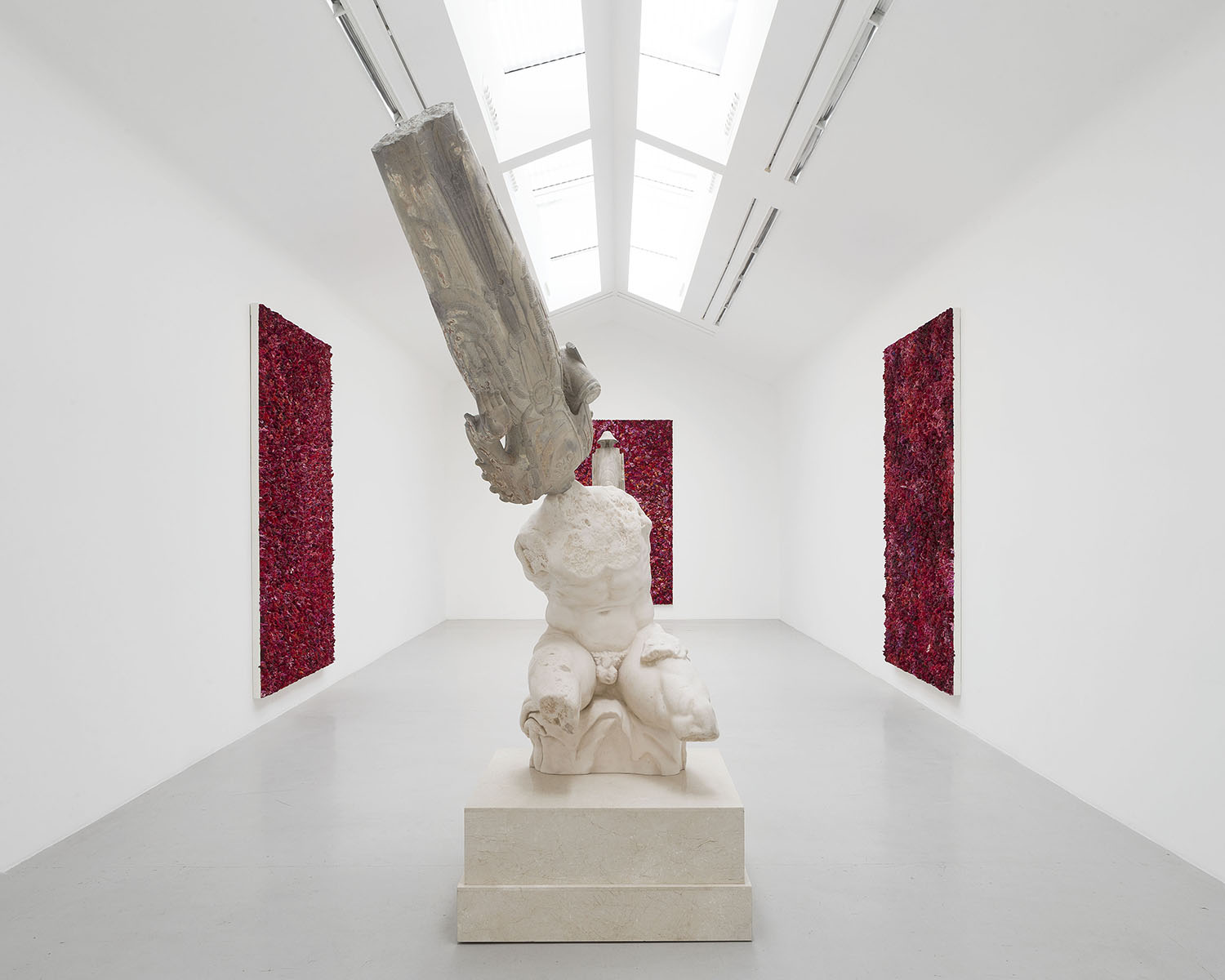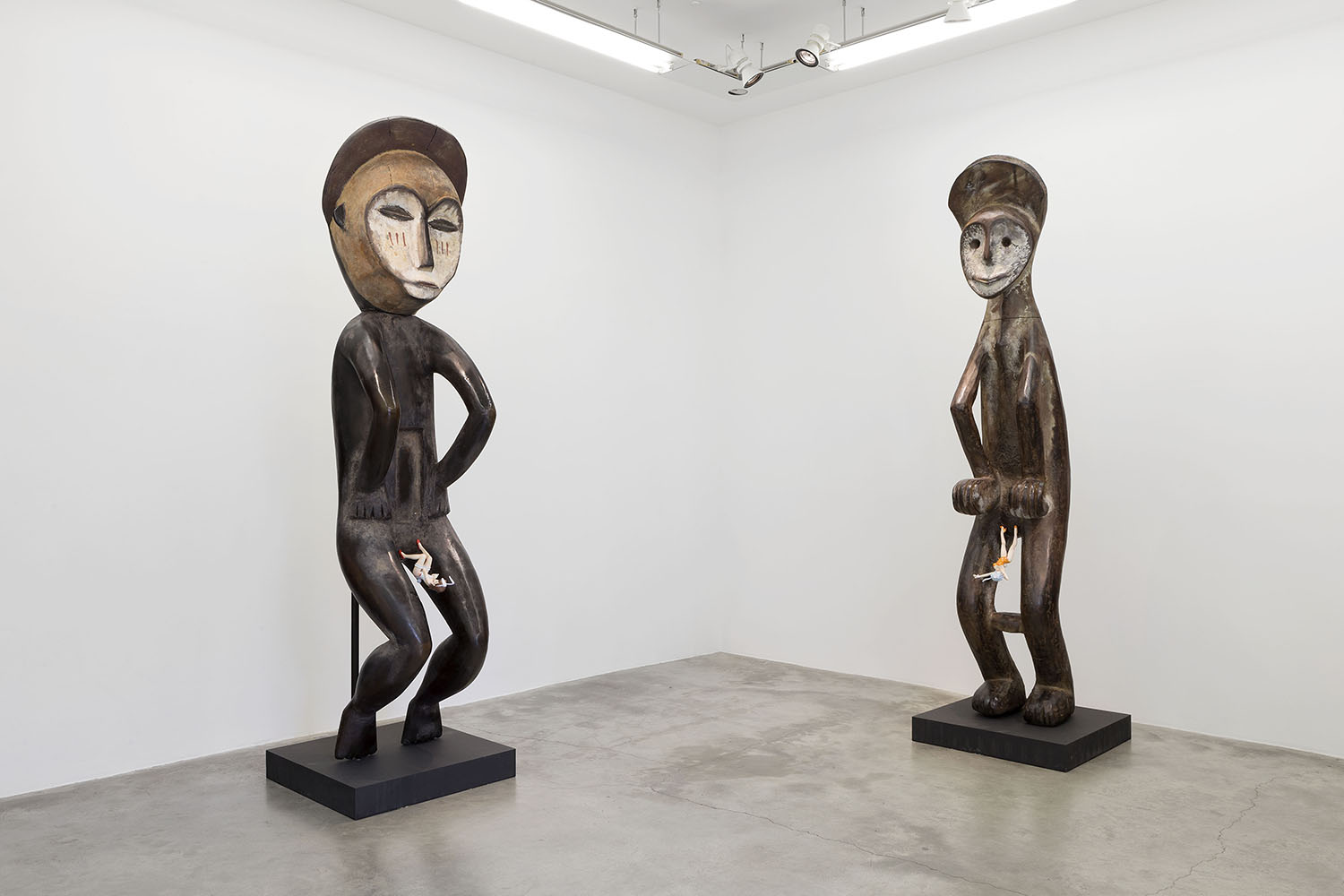Shows
Xu Zhen’s “Civilization Iteration”


In “Civilization Iteration”—an expansive survey of Chinese artist Xu Zhen’s recent body of work—the word “iteration” aptly echoes with Rainbow (1998), a video in which a fully exposed posterior endures continuous slaps from a digitally erased hand while the sound of diligent battering and the image of consequent bruises on the tired flesh remain strikingly evident. The video, running at three and a half minutes, was presented by the Shanghai-based artist at the 49th Venice Biennale in 2001, encapsulating key threads that he has articulated over the course of his career: transcendence, agony, and redemption.
Considered to be one of the most prolific contemporary Chinese artists, Xu founded MadeIn Company in 2009, taking on a new role as the organization’s CEO. Four years later, the company evolved into an art production firm that appears no different from a typical modest-scale enterprise. Through his company, Xu commits to producing art that enjoys global commercial success, all the while riffing off the “Made in China” tag found on every Chinese export. Furthermore, the anonymity provided by a commercial venture challenges the notion of the artist as a maker and figurehead, signaling a departure from creation driven by a single, masterful creative mind.
Xu’s “Under Heaven” paintings (2016), titled to attribute otherworldliness to his enterprise and art practice, radiate with lush red tones, mesmerizing abstractions, and voluminous oil paint applied more generously than icing on a cake. Xu’s utilization of such indulgence in color, form and material contravenes expectations within the art market and ridicules its dynamics determined by trends and impulses. The paintings’ glamorous surfaces resemble rose petals or glutinous candies, blurring the line between fraudulent and authentic, desirable and obsolete, high and low.


Benefiting from the gallery’s spacious interior that favors grandiose sculptural work alongside video and painting, the exhibition illustrates Xu’s ironic internalization of the duality between art’s commercial and intellectual value, expanding his field of interest to the overall complex dialogue between East and West. Ineffectively perceived as polar ends, Eastern and Western ideologies, as well as their purportedly distinct interpretations of humanism, are embodied in a group of conjoined statues in which Xu affixes the bodies of Buddhist sculptures to those of Greco-Roman figures. Upside-down, headless replicas of icons from Northern Qi (550–577) and Tang (618–907) dynasties, for example, are fastened to reproductions of similarly headless warriors of the Greek Temple of Aphaia, bonded at their necks and resting on granite surfaces. The Hellenic figures’ poised and heroic postures meet their Chinese counterparts, conveying fluidity in form and history.


Akin to scrolling through piles of images on a computer screen, the artist copies and pastes emblems of collective identity onto one another, cementing a narrative that is neither geographical nor chronological. Defying a linear and supposedly progressive course of civilization, Xu’s transcultural sculptures appear to practice introspection and corporeality. In the artist’s “Evolution” series (2016), the genitals of 19th-century Mbole tribal figures are replaced by figurines of anime heroine Tatenashi Sarashiki. Here, Xu merges the clichéd sexuality attributed to female anime characters with incomplete interpretations of African figures appended with limited notions of virility and misconstrued spirituality. In another large-scale sculpture, five replicas of Brancusi’s Sleeping Muse (1910) rest beneath a Six Dynasties period (220–589) dragon figure guarding the heads as if they were her treasured eggs due to hatch. Stripped from their historical context and cultural impact, such tokens challenge systematic classifications and adapt nuances emancipated from time, place and exclusivity. Xu’s assemblies of seemingly distinct artifacts generate alternate accounts that are extraordinary, interchangeable and often humorous.
Xu Zhen’s “Civilization Iteration” is on view at Galerie Perrotin, Paris, until July 29, 2017.







